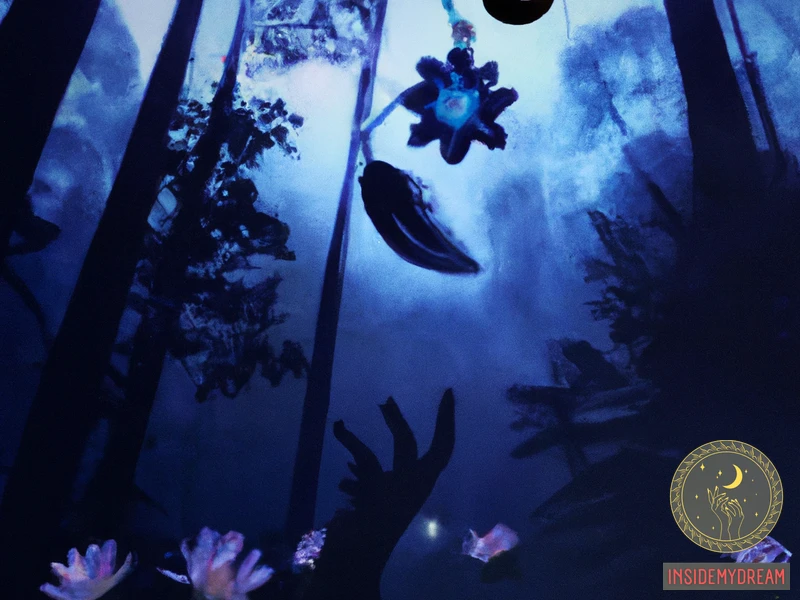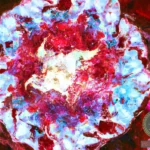Dreams have been a source of fascination and mystery for centuries. People have long believed that dreams hold deep meanings and can provide insights into our subconscious thoughts and emotions. One common dream theme that has intrigued many is the concept of human trafficking in dreams. What does it mean when we dream about human trafficking? Are there hidden messages or warnings that our subconscious is trying to convey? In this blog post, we will explore the possible meanings and implications of dreaming about human trafficking.
Understanding Dreams

Before delving into the specific dream interpretation of human trafficking, it’s essential to understand the nature of dreams themselves. Dreams are a manifestation of our subconscious mind, often reflecting our innermost fears, desires, and anxieties. They can be influenced by our daily experiences, emotions, and unresolved issues. Dream symbolism is subjective and can vary based on individual experiences and cultural beliefs. When it comes to interpreting dreams about human trafficking, it’s crucial to consider the broader context and personal associations the dreamer may have with this topic.
The Symbolism of Human Trafficking in Dreams

Dreams about human trafficking can evoke intense emotions and raise questions about their symbolic significance. Human trafficking is a deeply disturbing and pervasive issue that involves the exploitation and abuse of individuals for various purposes, including forced labor, sexual exploitation, and organ trafficking. In dreams, the symbolism of human trafficking may not necessarily mirror real-life scenarios but can instead represent broader themes related to power dynamics, vulnerability, and control. The dream imagery and emotions associated with human trafficking can offer valuable insights into the dreamer’s psychological landscape.
Fear and Vulnerability

One possible interpretation of dreaming about human trafficking is the manifestation of deep-seated fears and feelings of vulnerability. The sense of being forcibly taken or controlled in a dream can symbolize a perceived loss of agency or power in waking life. It may reflect anxieties about being exploited, manipulated, or experiencing a lack of autonomy in personal or professional relationships. The dreamer may be grappling with internalized fears of being taken advantage of or being unable to protect themselves from harm.
Power Dynamics and Control
Dreams of human trafficking could also signify underlying concerns about power dynamics and control. The dream imagery may illustrate the struggle for autonomy and the fear of being dominated or oppressed by others. It might reflect the dreamer’s internal conflict regarding feelings of powerlessness or the need to assert their independence. Additionally, such dreams could symbolize the presence of oppressive or manipulative forces in the dreamer’s life, whether in the form of relationships, work environments, or societal pressures.
Subscribe and Get a Free Dream Journal from Us
Emotional Trauma and Unresolved Issues
In some cases, dreams about human trafficking may point to unresolved trauma or emotional distress. The dream imagery could serve as a metaphor for past experiences of abuse, exploitation, or feelings of being trapped in distressing situations. It may indicate the need for the dreamer to address and process underlying emotional wounds, seeking healing and closure. Alternatively, the dream could be a subconscious attempt to bring attention to ongoing sources of stress and discomfort that require acknowledgment and resolution.
Empathy and Social Awareness
On a broader level, dreaming about human trafficking could be a reflection of the dreamer’s empathy and social consciousness. The dream may be a symbolic expression of concern for the well-being of others, highlighting the dreamer’s compassion for victims of exploitation and injustice. It could signify a heightened awareness of global issues and a desire to advocate for social change and human rights. The dreamer’s subconscious may be prompting them to confront social injustices and take a more active role in promoting awareness and support for marginalized communities.
Seeking Psychological Support
For individuals who experience distressing or recurrent dreams related to human trafficking, seeking professional psychological support can be beneficial. Dream interpretation can provide valuable insights, but it’s essential to address any underlying emotional or psychological concerns that may be contributing to the dream content. A qualified therapist or counselor can offer guidance and support in exploring the deeper meanings behind the dreams and assist in processing any associated emotional challenges.
Coping Strategies and Self-Empowerment
Upon reflecting on dreams about human trafficking, it can be empowering for the dreamer to explore strategies for coping with fears and anxieties. This may involve cultivating a sense of empowerment, setting healthy boundaries, and seeking avenues for personal and collective advocacy against exploitation and injustice. Engaging in self-care practices, such as mindfulness, journaling, or creative expression, can also aid in processing emotions and promoting resilience in the face of challenging dream imagery.
Cultivating Awareness and Action
While dreams about human trafficking can be unsettling, they can also serve as a catalyst for raising awareness and taking meaningful action. The dreamer may find inspiration in supporting organizations and initiatives dedicated to combating human trafficking and supporting survivors. By transforming the symbolic themes of vulnerability and oppression into acts of solidarity and advocacy, the dreamer can contribute to positive change within their community and beyond.
Curious about the meanings behind dreams related to human trafficking or other intense experiences? Explore our articles on unpacking dream meanings, hacking dream meanings, and traffic dream meanings for more insight into the complex world of dream interpretation!
Conclusion
Dreams about human trafficking carry complex and multifaceted symbolism, reflecting a range of emotional, psychological, and social dynamics. The interpretation of such dreams requires sensitivity to the individual’s experiences and emotions, as well as an understanding of broader societal issues related to exploitation and injustice. By exploring the symbolic meanings of these dreams and addressing any associated emotional challenges, individuals can gain valuable insights into their inner world and channel their awareness into positive action. Ultimately, dreams about human trafficking can prompt personal growth, empathy, and a renewed commitment to fostering a more just and equitable society.










